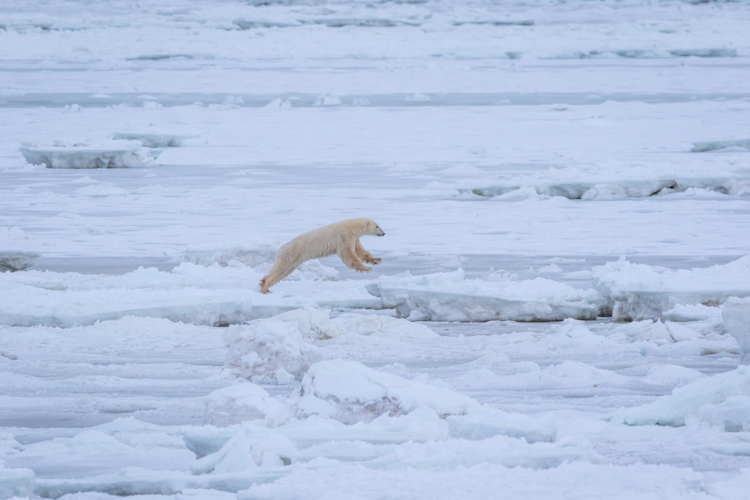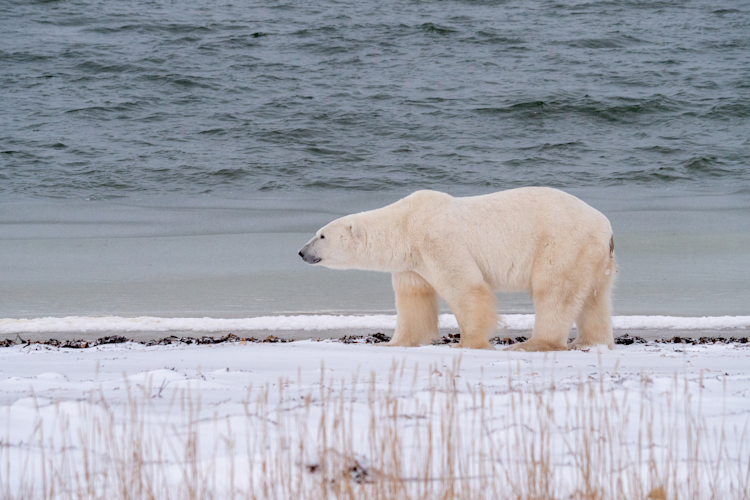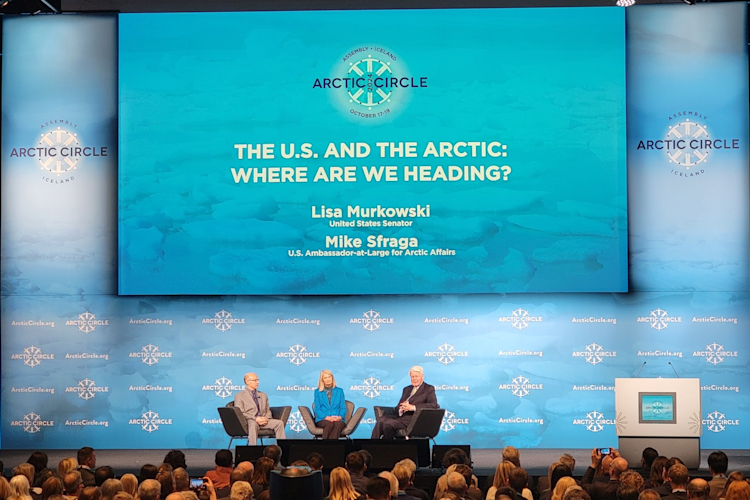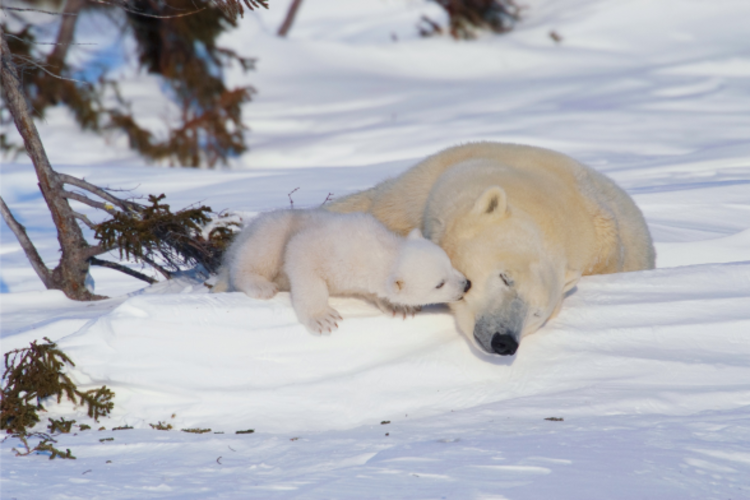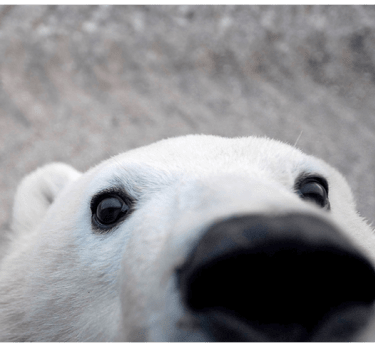The consequences of climate warming are now, they are widespread, and they are costly, according to Part II of the United Nations Intergovernmental Panel on Climate Change’s (IPCC) Sixth Assessment Report.
These IPCC reports document everything scientists know about how the climate is changing and how it will impact the world. Written by 270 researchers from 67 countries—and approved by 195 governments—Part II of the Sixth Assessment Report describes how climate warming is already affecting human life and natural systems on a global scale.
In the Arctic where polar bears live, ecological change due to climate warming is happening much faster than in other parts of the world and at an unprecedented magnitude and rate. The report states that Arctic sea ice and terrestrial ecosystems are at “high to very high” risk for biodiversity loss—a steep decline in polar bear populations is part of this story.
Climate warming is also exposing communities across the Arctic to increased food and water insecurity, weakened infrastructure, and displacement. This report shows that—worldwide—the most vulnerable people are disproportionately exposed to climate warming and are hit the hardest by the changes.
Transformational, rather than incremental, adaptation measures are essential to protecting people and life around the globe—and must be pursued in tandem with rapid emission reductions. If global temperatures keep rising, this report warns that many places and communities will confront limits to how much they can adapt to a dramatically altered environment.
The last sentence of the report summary emphasizes the urgent need for political will to finally rival the scale of the climate crisis:
"The scientific evidence is unequivocal: climate change is a threat to human well-being and the health of the planet. Any further delay in concerted global action will miss a brief and rapidly closing window to secure a livable future."
We expect to see the final pieces of the Sixth Assessment Report later this year, and then the Seventh installment will not be released for another six to seven years. Given the importance of this decade for climate action, the Sixth Assessment might be the last report that can guide us towards action that avoids the worst impacts of climate warming—for polar bears, people, and all life on Earth.

Photo: Kieran Mulvaney
New Climate Report from the United Nations
By Emily Ringer, Senior Manager of Advocacy and Communications, and Geoff York, Senior Director of Conservation
MINS
28 Feb 2022



